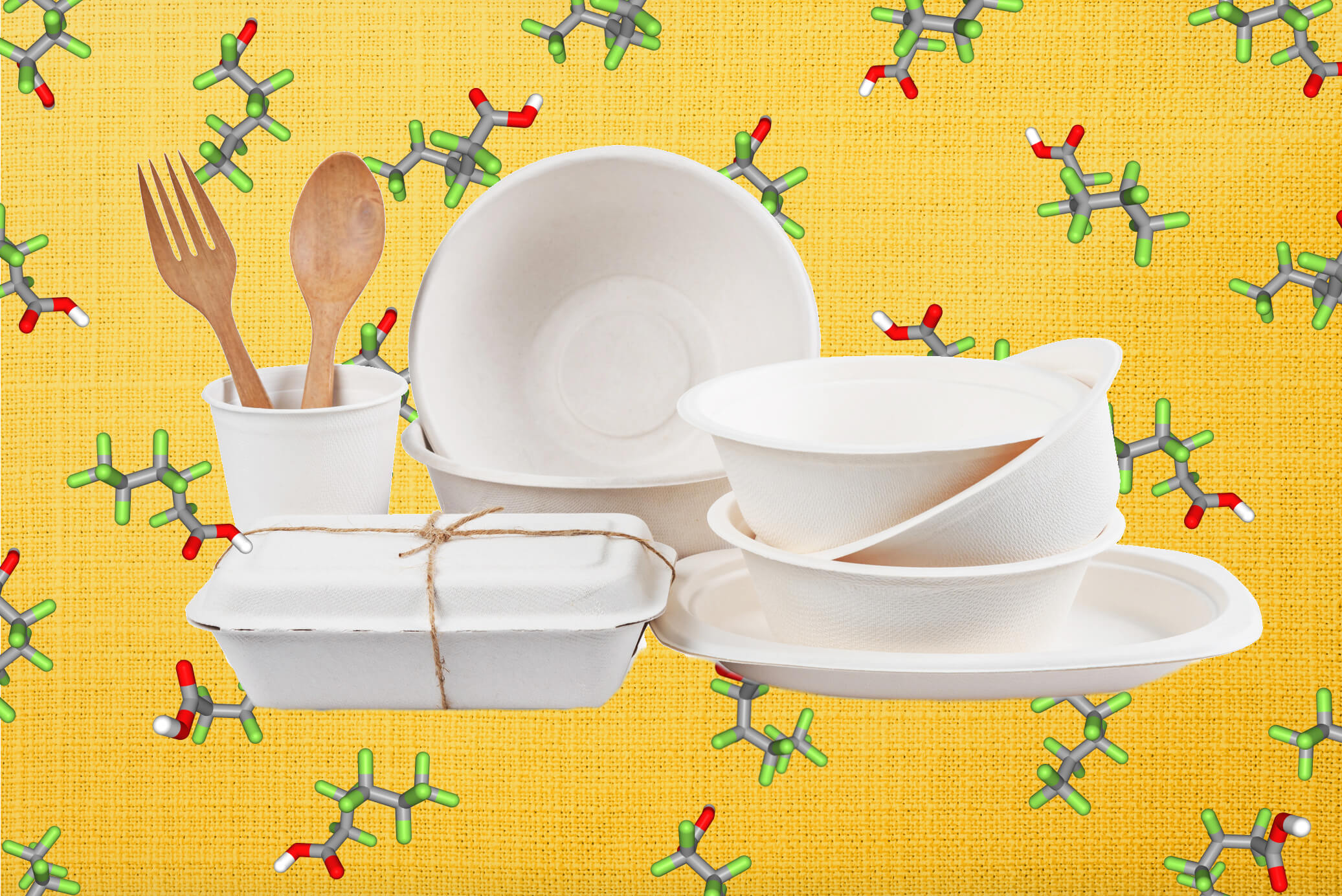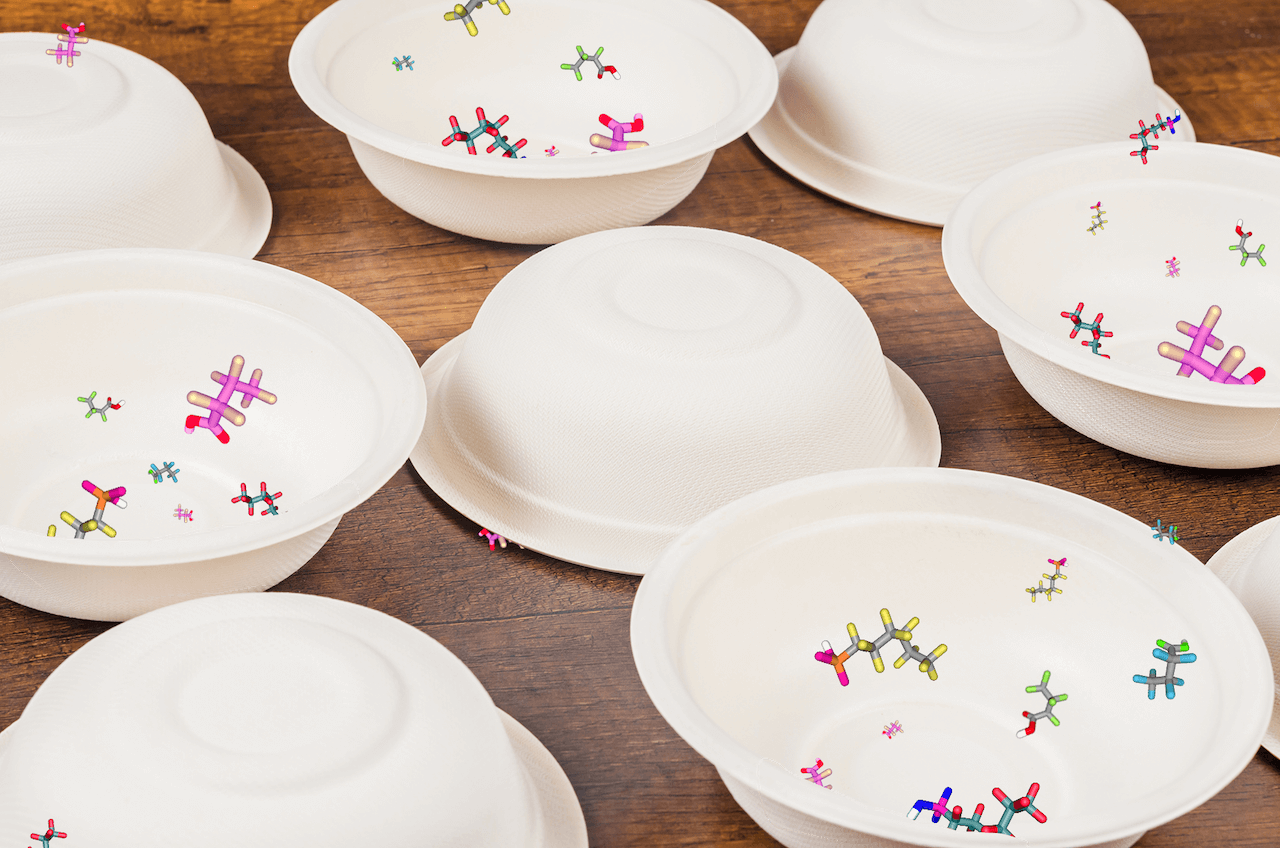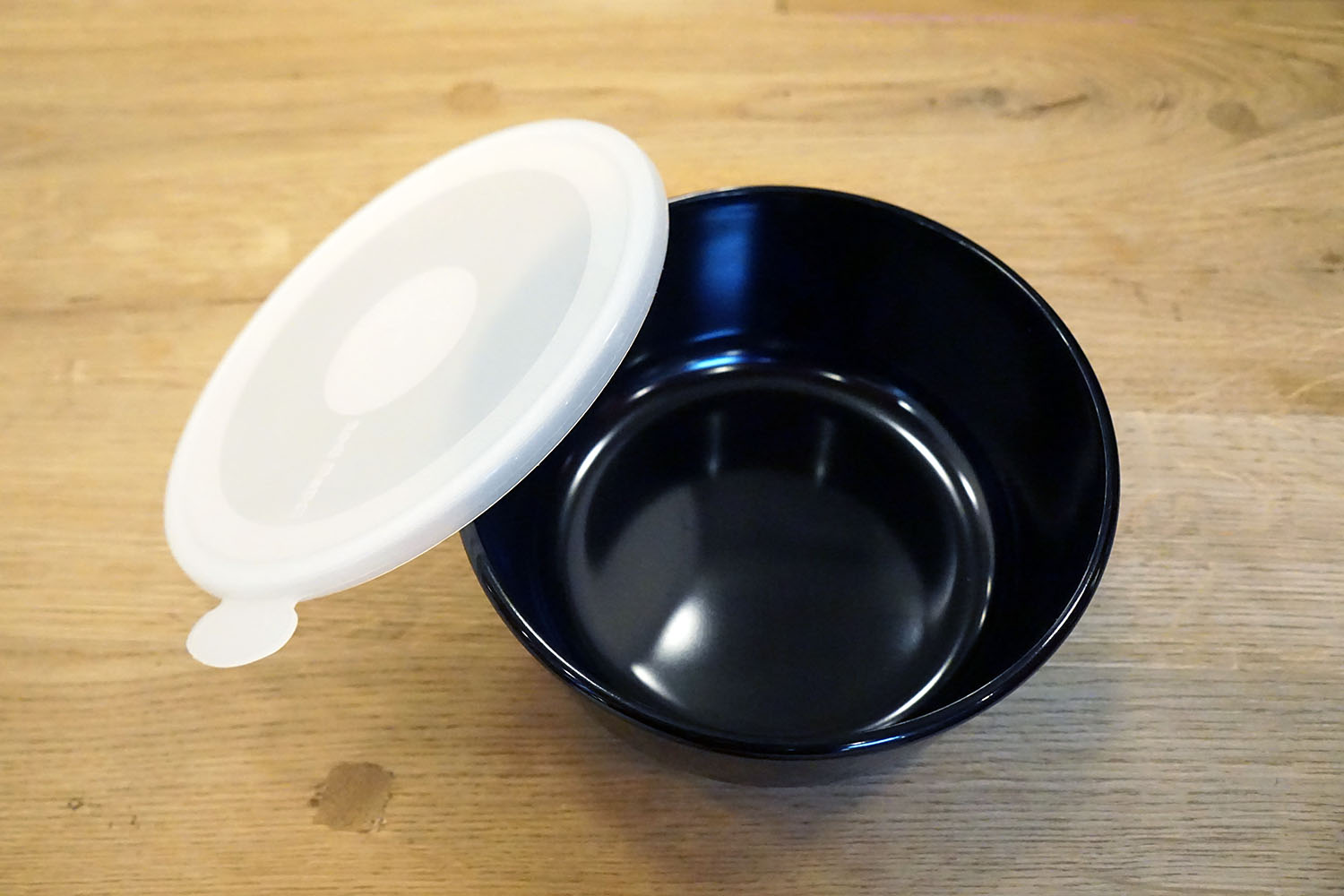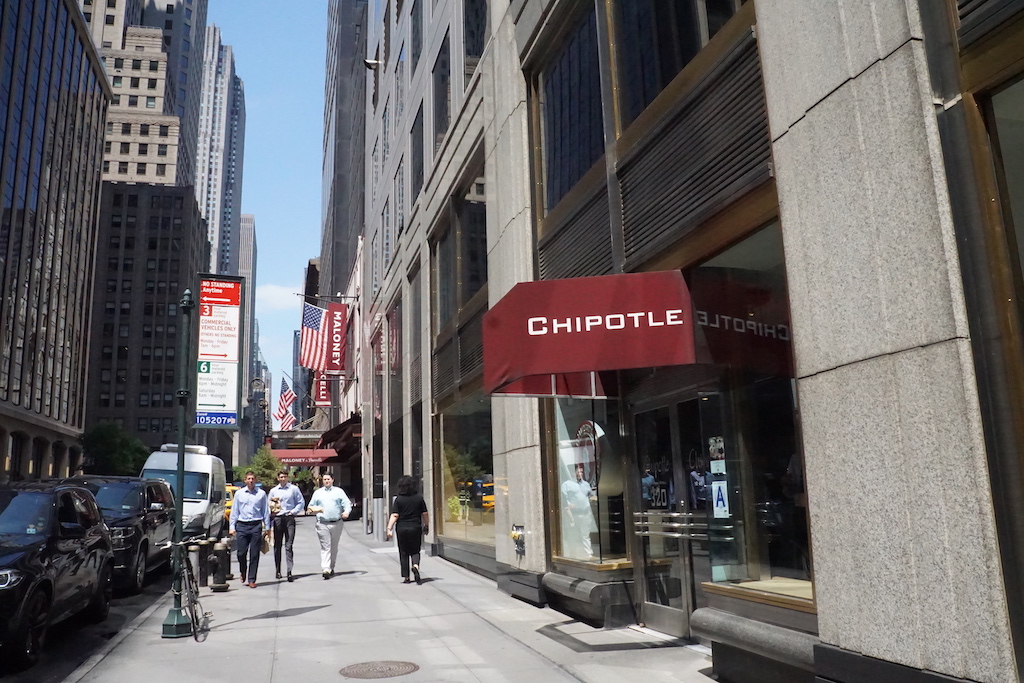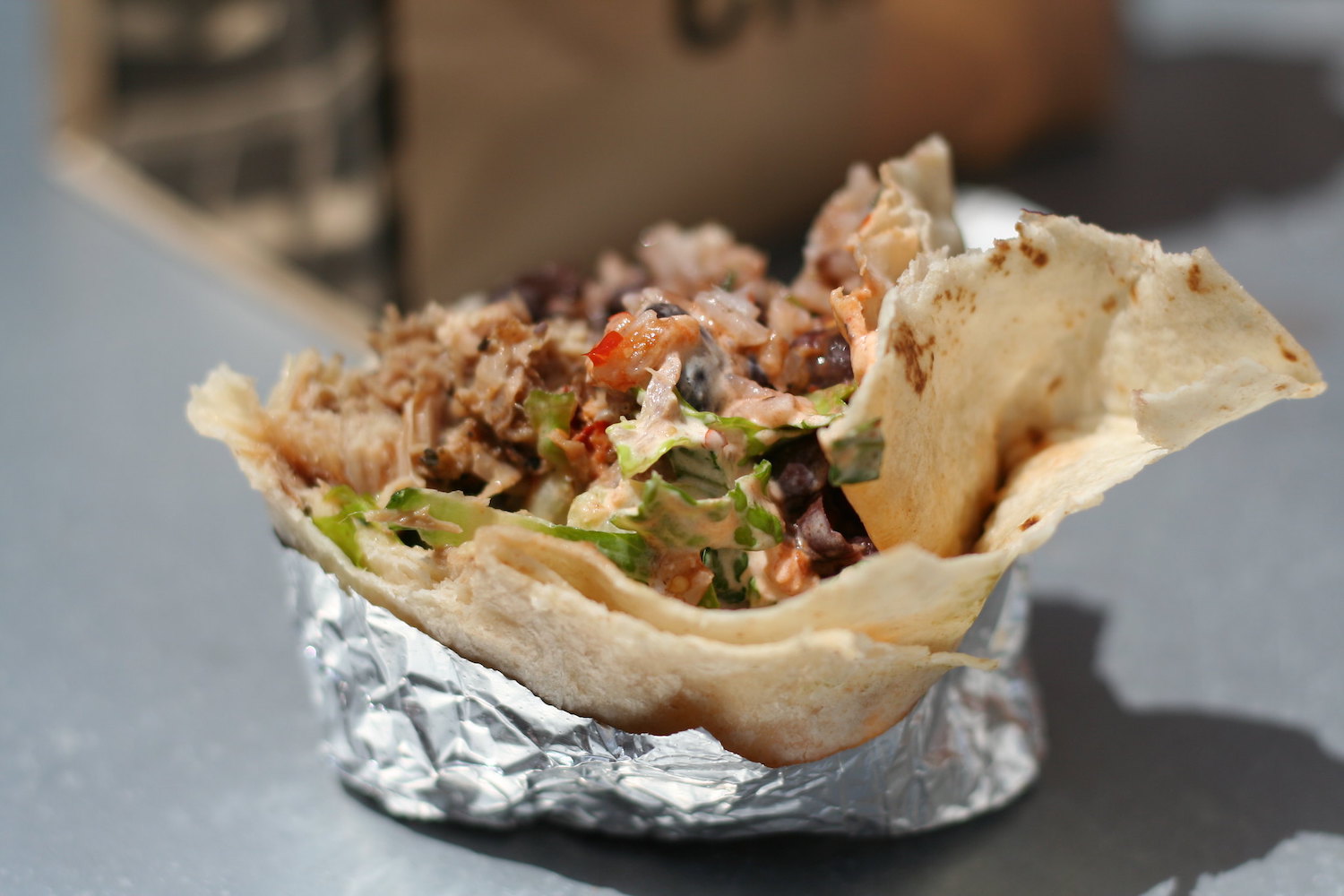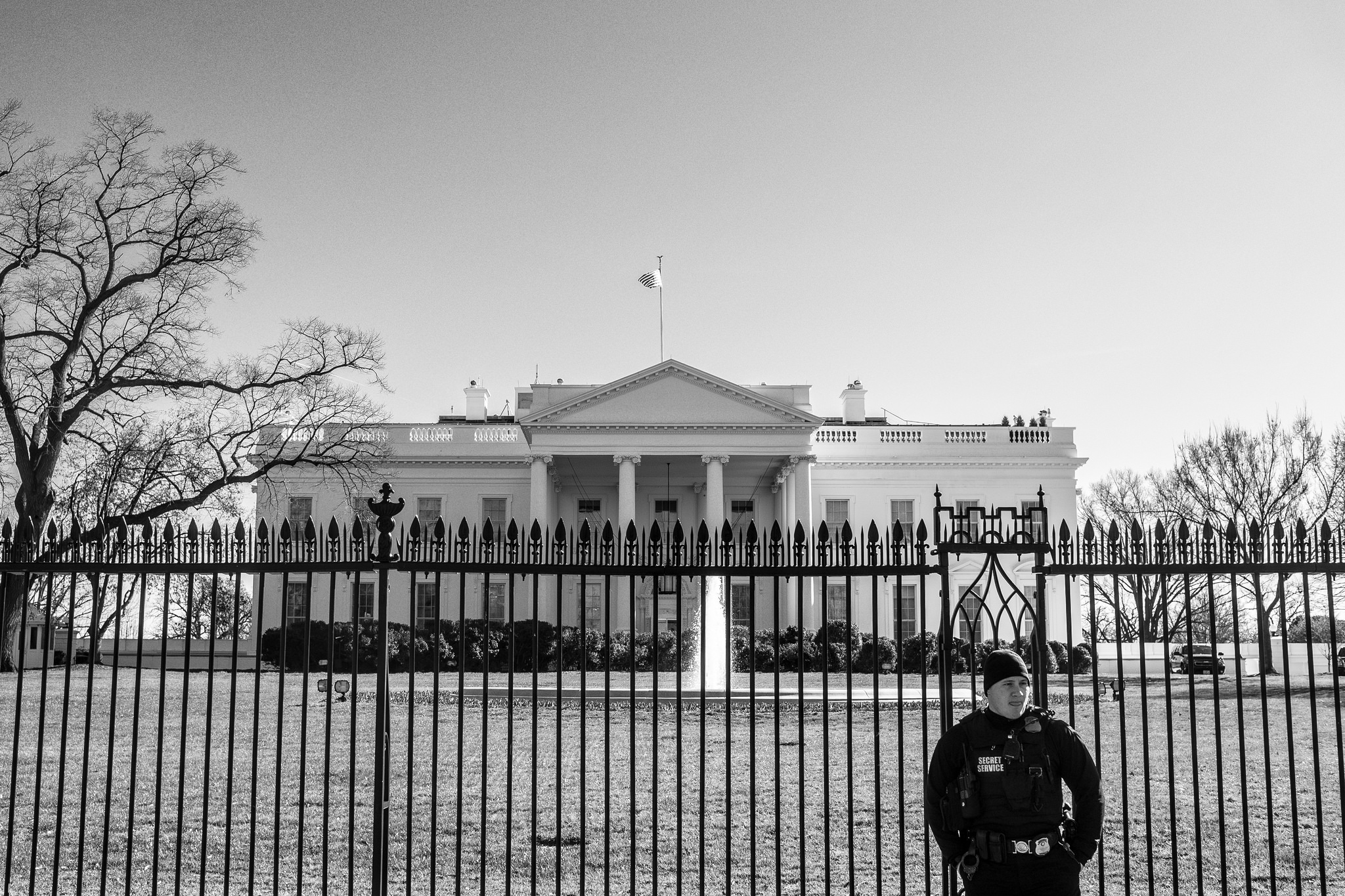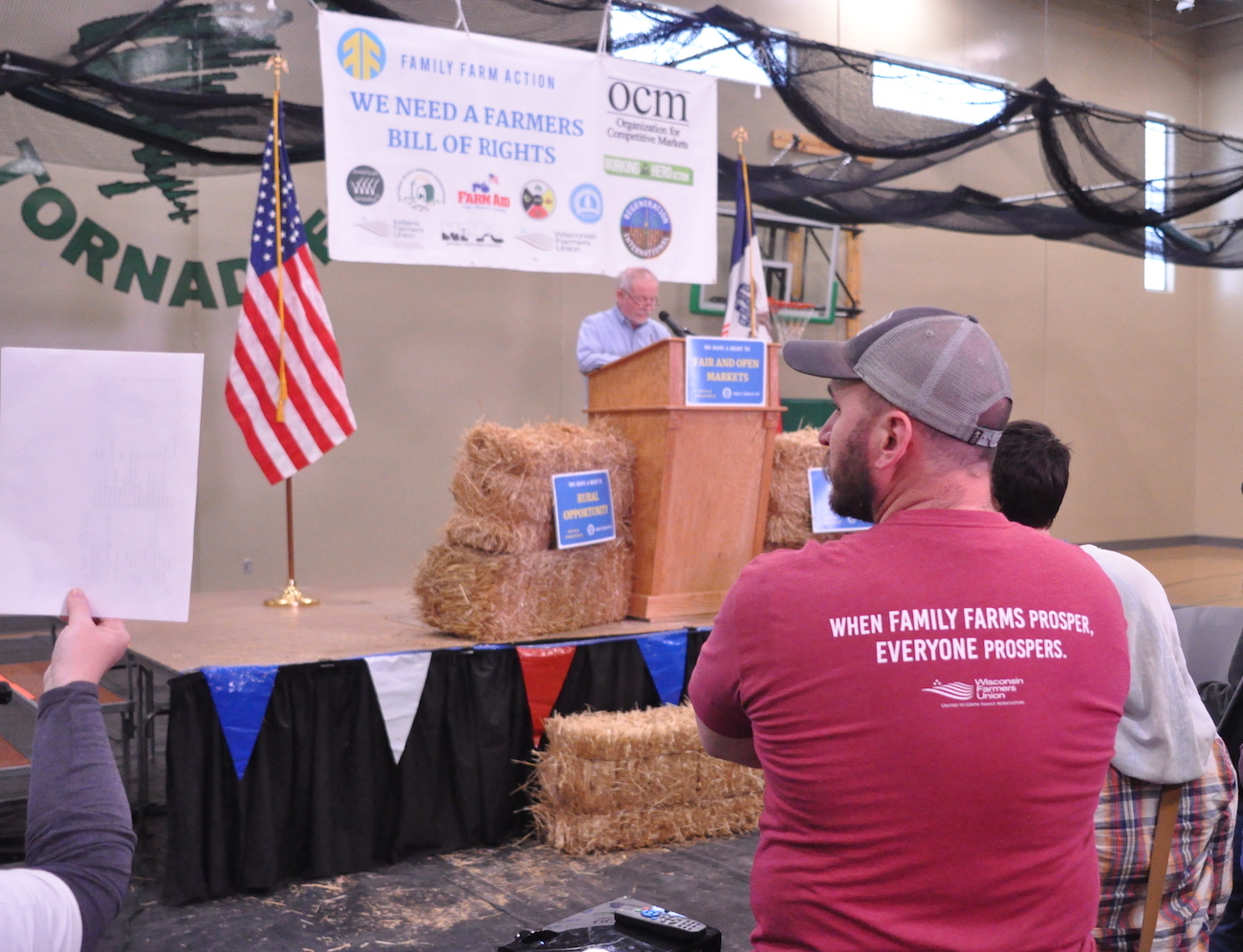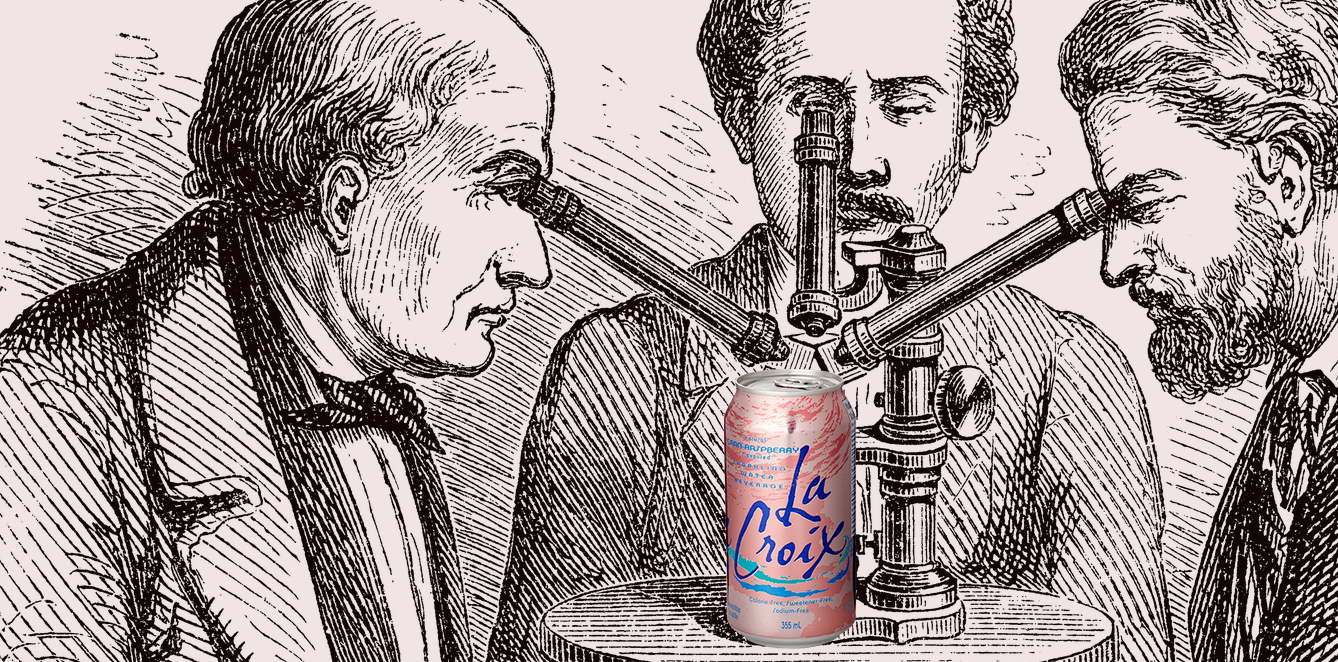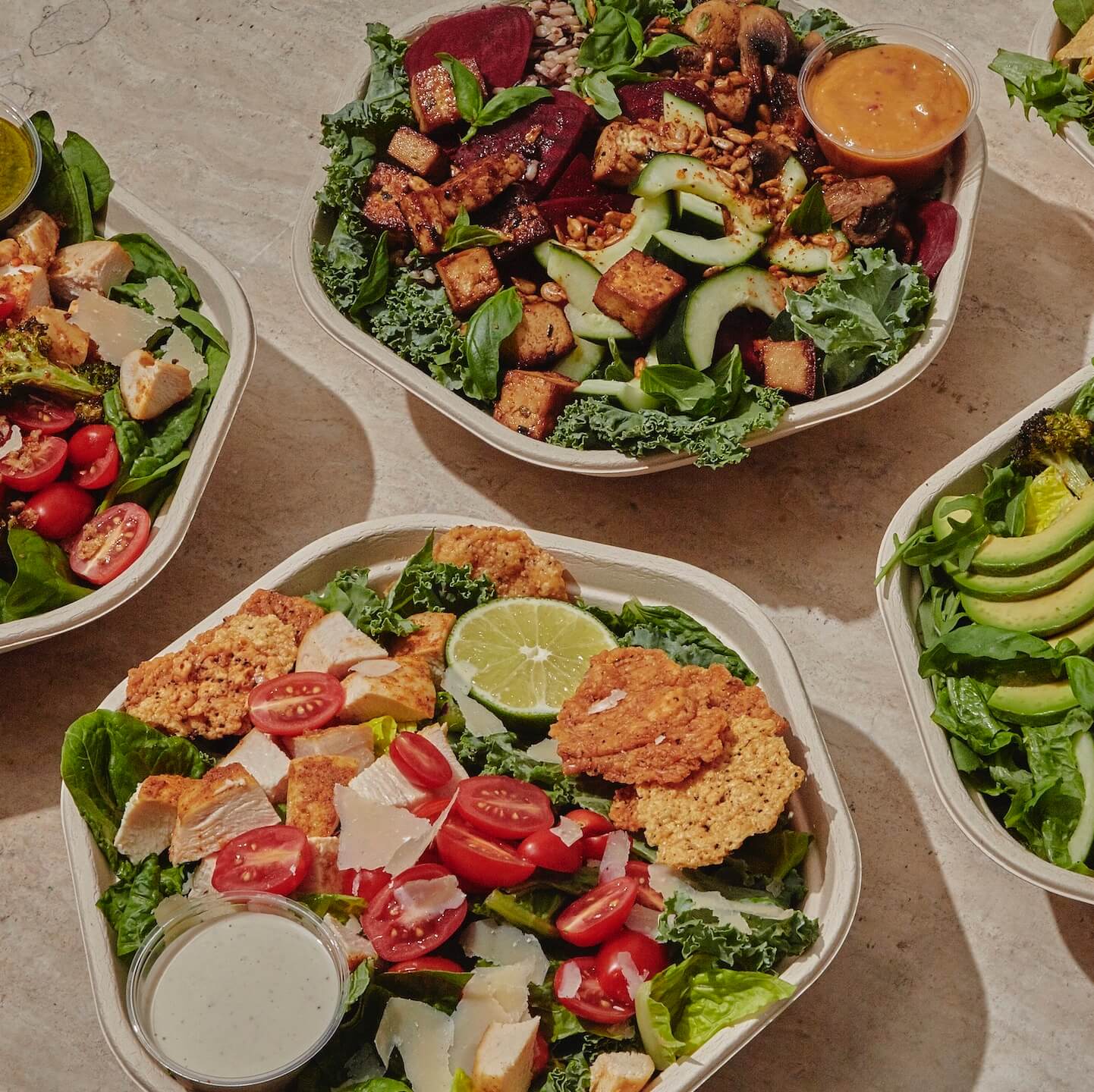
Sweetgreen
How fast-casual leaders changed their stance on PFAS almost overnight.
On January 1st, 2020, something subtle but significant changed in San Francisco: At its one restaurant in the city, the popular salad chain Sweetgreen quietly swapped out its distinctive, hexagonal bowls for a new variety. The bowls looked similar, and Sweetgreen made no public announcement. But the change signaled the beginning of a profound transformation.
The old bowls had been treated with PFAS, or per- and polyfluoroalkyl substances, a class of fluorinated “forever chemicals” that contaminate soil and water, do not biodegrade naturally in the environment, and are linked to worrying health outcomes, including reproductive issues, thyroid dysfunction, and cancer. The new substitutes were PFAS-free—apparently the first time such a container had been used in a U.S. restaurant, according to multiple industry sources I spoke to for this article.
The switch, first reported by Fast Company this month, is a considerable milestone. In an August 2019 investigation for The Counter (then called The New Food Economy), I reported that virtually all takeout containers made from molded plant fibers contain PFAS. At the time, fluorination was the only way to make fiber bowls—the beige, papery kind popular at food halls, food trucks, and fast-casual eateries—that could hold hot, greasy food. Without PFAS, these bowls would wilt and fall apart the minute they touched your lunch.
That reality is changing rapidly. In an emailed statement to The Counter, Sweetgreen said it soon expects all of its 100-plus restaurants across the country to be PFAS-free. “Our goal is to roll out this new packaging to all our restaurants nationwide by the end of 2020, at which time they’ll also be made domestically, and out of post-industrial recycled paperboard,” the statement read, in part. (Throughout 2019, according to import records, Sweetgreen’s 40-ounce hexagonal grain bowls were shipped to the U.S. from China.)
“It’s a game-changer for the fast-casual industry.”
Since the municipal foam bans of the early 2000s, plant-based bowls have been a rising star of commercial foodservice—but their considerable environmental drawbacks have not become well-known until more recently. Though data about how many are sold each year are not readily available, Adam Eskin, founder and CEO of fast-casual chain Dig, told me that a single Dig outpost can go through 1,000 bowls in a day. So for consumer advocacy groups working to spread the word about the dangers of PFAS, Sweetgreen’s news has been cause for celebration.
“The fact that Sweetgreen has made a commitment to phase out the use of PFAS-containing bowls by the end of this year is a game-changer for the fast-casual industry,” said Mike Schade, director of Mind the Store, a national public awareness campaign run by the non-profit Safer Chemicals, Healthy Families. “I think it will likely cause a major ripple effect among other major fast casual chains. We certainly hope it will inspire and motivate other major companies to follow suit.”
Other restaurant chains have not yet switched to PFAS-free, even in a limited number of locations. Still, by the end of 2020, the landscape could look very different. Chipotle, for instance, has been working actively on the issue—and has some news of its own.
“We are continually working to remain leaders in all areas of sustainability, including sustainable packaging,” the company said, in an emailed statement. “Even though our current bowls fully meet regulatory requirements, we want to continue driving change and identifying solutions that are best for our guests and the environment. We’ve been working closely with our suppliers to develop new food packaging that is sustainably sourced, functional, compostable, and free of PFAS. We look forward to rolling this new packaging out into our restaurants by the end of the year.”
The company’s statement echoes what I’ve heard from other industry
sources: Compostable bowls without PFAS are tantalizingly close, but not quite
here yet. So how was Sweetgreen able to beat so many others to the punch?
The answer lies with Footprint, a Gilbert, Arizona-based sustainable packaging company working to eliminate plastic from the retail industry, co-founded by two former Intel engineers. Through a combination of judicious planning, scientific prowess, and dumb luck, Footprint was positioned to take advantage of sudden demand when The Counter’s investigation broke.
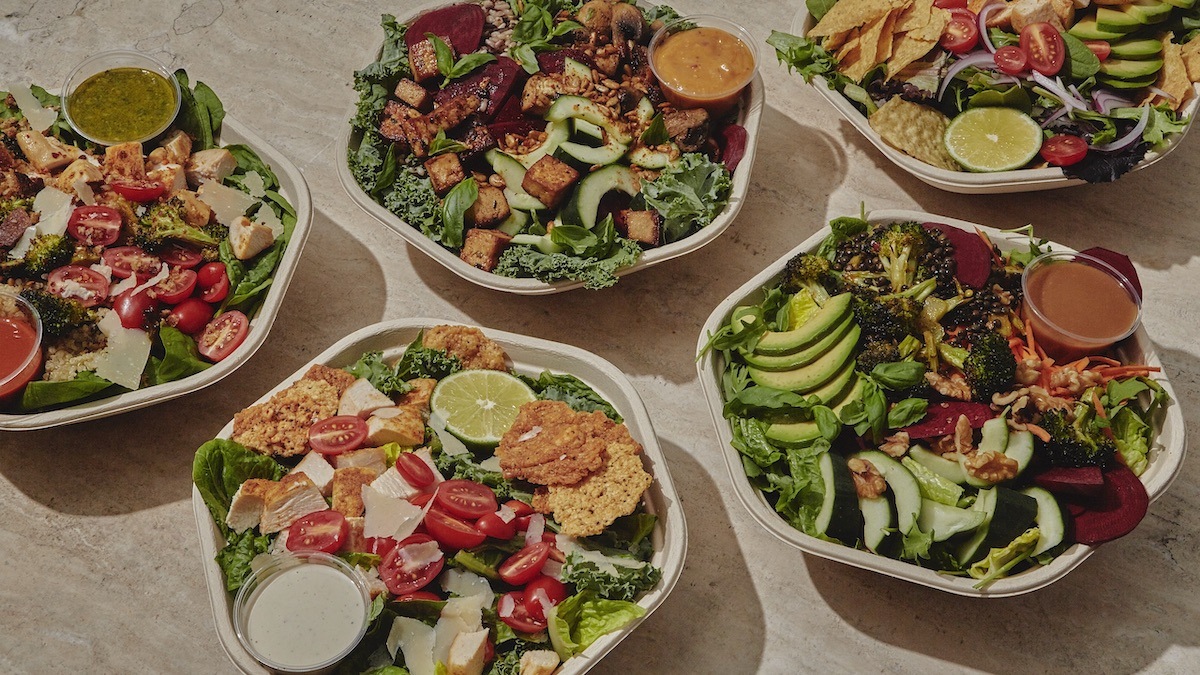
For now, Sweetgreen’s PFAS-free bowls are only available at one restaurant in San Francisco. But that’s supposed to change by the end of 2020.
Sweetgreen
Since the second half of 2019, restaurants—and the packaging manufacturers who supply them—have been under enormous pressure to find alternatives to PFAS. “Forever chemicals” have been a source of heated debate, and the subject of some legislation, on Capitol Hill. Dark Waters, a Hollywood film starring Mark Ruffalo by the award-winning production company behind Spotlight and An Inconvenient Truth, highlighted the health and environmental dangers PFAS production can pose to American communities.
Perhaps most significantly, the Biodegradable Products Institute, Inc. (BPI)—North America’s leading certifier of compostability claims—announced a change to its certification standards in December 2017. As of January 1st, 2020, BPI no longer certifies any products with more than 100 parts per million total fluorine; levels above that suggest a product has been intentionally treated with PFAS. For context, the 17 bowls The Counter lab-tested as part of my investigation ranged between 800 and over 2,000 parts per million total fluorine.
On or before New Years’ Day, companies wanting to sell BPI-certified fiber dishware needed to reapply for certification, including documents showing that those products fall below the threshold—and that change had major implications in the Bay Area. Because San Francisco’s rules insist that all single-use takeout containers be BPI-certified, the new standard amounts to a de facto ban on PFAS in food packaging within the city limits.
Though companies had two years to find a solution, low public awareness and engineering challenges meant that most packaging companies had still not developed commercially viable PFAS-free dishware by the summer of 2019. There was a last-minute scramble to develop new products before the deadline hit, shedding light on an industry that was still only starting to prepare for big changes.
“Making a bowl that’s PFAS-free is a massive challenge.”
But Footprint, the company that makes Sweetgreen’s new bowls, was already on the case. According to Jeff Bassett, Footprint’s vice president of sales and marketing, the company first started trying to find a replacement for PFAS in molded fiber back in 2016, when it was hired by the packaged food company Conagra Brands to revamp the presentation of its line of Healthy Choice frozen foods. The goals, at first, were more about function and aesthetics than anything—but both companies soon decided that PFAS could be a liability down the line. Forever chemicals are a ubiquitous presence in the freezer aisle, where they’re used in packaging to help food withstand long, cold months at sub-zero temperatures.
“We started working on a solution to resolve this issue before it became a problem for our customers,” Bassett said.
The idea was to embrace the growing bowl-food trend by selling single-serving frozen-food items that resembled what you might buy at a fast-casual place. But making freezer-friendlymolded fiber bowls without PFAS turned out to be difficult.
“The reality is that making a bowl that is PFAS-free, that holds up to water, holds up to oil, can be frozen with the shelf life of a year, in some cases, and also be microwave-safe, oven-safe, etcetera—and then after all that, completely disintegrate and basically be compostable once the consumer is done with it—is a massive challenge,” Bassett said.
Aseem Das, founder and CEO of World Centric, the food packaging company that still makes Sweetgreen’s bowls outside San Francisco, described a common industry stress test: A fiber bowl will be filled with scalding oil, and heated to 220 degrees Fahrenheit. If it doesn’t leak for 30 minutes, the bowl is ready for prime time. That kind of durability is easily achieved with fluorinated chemicals. It’s not so easily done without them.
About two years ago, Bassett says, Footprint’s team successfully
created what the company calls a “bio-based” formula, meaning that the carbons
are derived from renewable resources, not fossil fuels. The protective barrier
didn’t contain PFAS, but the company still had to do some field testing.
“We had to make sure that we weren’t impacting or reducing the shelf life or getting freezer burn,” Bassett said. “The only way you can do that is to actually put it in the freezer for six months, and measure the moisture loss over that amount of time.” Ultimately, the new approach did pass muster—and the final iteration was ready in the summer of 2019.
The timing turned out to be fortuitous. The sudden public interest in PFAS and molded fiber struck the company—which was just delivering its first PFAS-free units to Conagra when The Counter’s story ran—as a major business opportunity, according to Bassett. Though Footprint did not yet have a product ready for the restaurant space, it believed that the hard part was developing its proprietary formulation—and that making a version for fast casual eateries would not be a stretch.
Footprint immediately reached out to Chipotle. “We called them and basically said, ‘We noticed you have this new challenge. Well, we actually have an answer for you,” Bassett recalled. Other restaurant chains were calling to ask what could be done. (Footprint wouldn’t comment on any the status of any potential partnerships that have not yet been announced.) One of those companies was Sweetgreen, which reached out to Footprint looking for a solution to its own PFAS problem. Before long, Footprint and Sweetgreen began collaborating on a PFAS-free bowl, a new version that would build on the success of Conagra’s Healthy Choice packaging.
“If I told you it was easy, my engineers would come in here and strangle me,” Bassett said, laughing. “When you change the shape and the size of the bowls, suddenly your manufacturing process has to alter. You’ve got to change the spray pattern for your nozzles, and it takes a lot of engineering work.” But the company was confident in its technique, and it was able to produce enough bowls to serve Sweetgreen’s entire San Francisco customer base by January 1st, 2020.
Since the bowls are not yet BPI-certified (that process can take 30 to 45 days, but requires documentation that takes months), they technically don’t comply with the letter of the San Francisco’s law—though they’re apparently the first plant-fiber product to be in accordance with its spirit. The larger issue for Footprint will be scaling its manufacturing operation to accommodate Sweetgreen’s other stores, as well as subsequent demand from other businesses. The company operates a network of three North American facilities in Arizona, South Carolina, and Mexico. The current focus is to expand the Mexico facility by 1.1 million square feet, while rolling out a newly designed form of equipment that can increase productivity fivefold.
Other companies are following hot on Footprint’s heels. The Boulder, Colorado-based sustainable packaging company Eco-Products, which is owned by global manufacturing giant Newell Brands, already has BPI certification for its Vanguard line of molded fiber products. However, so far, those bowls are available only in one store, and it’s not a traditional restaurant: Visitors to the Whole Foods hot bar in Boulder will find Eco Products’ first PFAS-free containers. The company hopes it will be ready to supply large restaurant chains by June of this year.
“The first step is coming up with the chemistry—that’s the huge step one,” said Sarah Martinez, Eco-Products’ director of marketing. “Then you get into the production and supply issues. We are seeing more interest than we anticipated from very large chains, and it doesn’t take too many chains to suck up the supply of what we’ve been able to produce. We were hoping to have more products available more broadly in the market at this time, but because of the interest from large chains, it’s just pushed out the date of it in terms of getting them into distribution.”
“We should have tried to work on a solution much earlier.’”
“It’s encouraging to see manufacturers of molded fiber products, and the restaurants using them, rally behind BPI’s rules to eliminate PFAS,” said Rhodes Yepsen, BPI’s executive director, in an email. “We have seen a flurry of activity in the last few months, removing BPI’s certification claims from non-compliant products, and working hard to develop, commercialize and certify new solutions. We’ve certified a few molded fiber items without PFAS, and more are in the pipeline for 2020. This is great news for businesses and municipalities with food scraps collection programs, and composting facilities receiving that material.”
But other plant-based container companies have been unable to move so quickly—like World Centric, which currently supplies Sweetgreen with its bowls outside of San Francisco. Those bowls still contain PFAS, and Aseem Das, the company’s CEO, says his team has not yet invented a solution that’s ready for market.
World Centric’s issue has been on the manufacturing side. The company historically has applied what’s known as a “wet-end solution”—mashing the plant fibers into a slurry, and mixing the PFAS in directly. But the PFAS-free formulations it is exploring do not work when applied that way, and Das estimates that it will be at least a year before manufacturers can use that process without PFAS. World Centric has since pivoted to an approach more like Footprint’s: spraying the coating on a finished bowl. That change has meant rejiggering its supply chain, and Das says World Centric is still a few months out from being able to market a PFAS-free product of its own.
For Sweetgreen, that wasn’t fast enough, though Das says World Centric may continue to partner with the company on a potential line of smaller-sized bowls down the line.
“Unfortunately, we’re going to be losing that business to Footprint down the road, starting later in the year,” Das said. “When you run a business, there are always going to be wins and losses. Partially, it’s ‘hey, we should have tried to work on a solution much earlier.’”
Correction: This article originally stated that the food packaging company World Centric was at least a year away from a PFAS-free bowl. In an email in response to the piece, the company clarified that the technology to create a PFAS-free bowl using its existing manufacturing process is still over a year away, but that it has since moved forward with a different approach that is only a few months away. This story has been updated to reflect that clarification.


